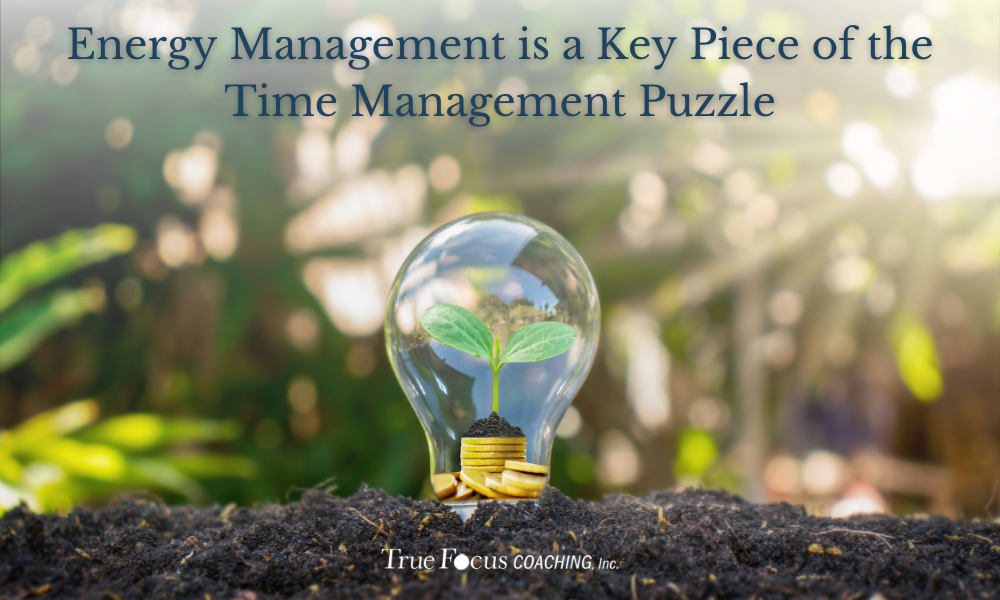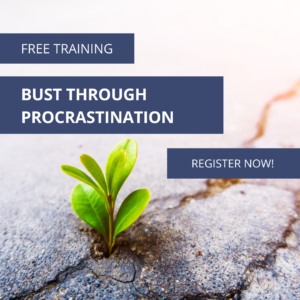You probably have a rough idea of how much your most recent energy bill was. You might not know how much energy you used to power your home last month, but you could find out by checking your account. We have a lot of ways to measure and track energy use for the things we use every day. We can even track how many calories we burn when we expend energy at the gym.
If only it were that easy to measure and track your physical and mental energy over the course of the day. It would be easier to plan your next moves and make quick adjustments to your schedule if you were able to check a personal energy meter at any time. In the green? Now’s the time to attack that challenging task you put off yesterday. In the yellow? Maybe focus on tasks that are lower pressure—or go grab a snack or take a walk to boost yourself up to green. If your energy meter hits red, you’ll know it’s time to call it quits on work or other high-stress tasks until you’ve slept or have otherwise charged yourself up.
When we talk about time management and productivity, we also have to talk about energy management.
You can create a really great plan for the day, carefully scheduled with tasks that are goal-oriented or meaningful to you in some other way, but you can’t execute that plan if your energy doesn’t show up for you in the way you need it to.
It’s one thing to use your time management skills to create plans that let you be your most productive self at work and have the personal life you want. It takes a lot of physical and mental energy to actually create that productivity and complete all those tasks on the daily to-do list.
What if you plan to spend the afternoon in a planning session to strategize for an important client pitch, but you feel unusually sleepy and unfocused after lunch? Either you’re going to end up feeling unprepared for the pitch, or you’ll have to build more time into your schedule the next day to try again.
Sometimes it’s an excess of energy that interferes with productivity. Maybe you slept great, had a great morning workout and arrive at your desk feeling alert and excited about a certain project… but you’ve scheduled yourself to spend the morning churning out emails, reviewing reports, or doing some other tasks that don’t require a ton of focus and creativity. Not only are you probably going to be antsy and bored, but that energy bubble will go to waste.
I know that energy regulation can be an especially big challenge for people living with certain conditions. For example, some professionals with ADHD might swing between periods of very high energy and periods of fatigue throughout the day. Living with chronic pain or having medical conditions that affect your energy can also be huge obstacles for your productivity.
Fall is a time when you need to get intentional about energy management.
Not only are we closing in on the end of the business year, but the holiday season is coming up quickly. No matter what you celebrate, the holidays tend to be energy-zappers. Shopping, cooking, traveling, socializing, and navigating family gatherings can leave you feeling wrung out or buzzing with anxious energy. If you’ve lost a loved one this year or have complicated feelings about the holidays, grief and discomfort are probably going to come up for you too.
Meanwhile, the clock is ticking down toward New Year’s, and you need to make the final push on your goals for this year. You’re going to need to maximize your energy to get the important things done and give yourself time and space to disconnect from work and experience the holiday season in whatever way you want. Now’s the time to pay close attention to your physical and mental energy and make sure your time management strategies are designed to accommodate fluctuations in energy.
3 Steps for Improving Energy Management
- Notice which tasks fuel you and which tasks deplete your energy. What are the work projects and activities that make you feel the most awake, excited, and engaged? Which tasks and activities drain your physical, mental, and/or emotional batteries? Noticing the way different tasks affect you helps you fine-tune the way you structure your plans.
- Develop a short list of go-to strategies for adjusting your energy. Imagine you have an urgent, time-sensitive task in front of you, but you’re feeling tired or just off. What are some things you can do in 10 or 15 minutes that you know will help you feel more alert and energized? On the flip side, what are some go-to activities that you know will help you burn off or focus excess energy? Everyone’s different, so think about what’s really effective for you when you need an energy adjustment.
- Make sure your daily, weekly, and monthly plans are designed with the kind of flexibility that lets you shift things as your energy demands. Other than the big, unmovable “rocks” in your schedule (appointments, deadlines, client meetings), think about structuring your plans in ways that allow you to move things around during the course of a day so you can alter your schedule according to your current energy levels.
Need More Support with Time Management—and Energy Management?
Ready for a hectic autumn and winter? Not if you don’t have time management strategies that will actually work in the real world, even when things don’t go according to plan. I can help! Join me on October 19th for 5 Steps to Navigate the Demands on Your Time and Achieve Your Goals. This no-cost training will help you figure out exactly what you need to do to get your business where you want it to be by year-end and what steps you can take right away to get you closer to completing those goals.
If you want to start fresh at New Year’s, feeling great about everything you’ve done this year, this training will help you get there. And again, there’s no cost to join us—so there’s zero risk. Click here for more information and to save your spot!
Be well,
Sarah
- Want to Enjoy a Peaceful, Productive 2025? Get Ready with These 9 Questions - December 18, 2024
- Could Practicing Gratitude Improve Your Time Management and Productivity? - November 26, 2024
- Try This Exercise for Better Productivity, Less Anxiety and More Peace - November 15, 2024



